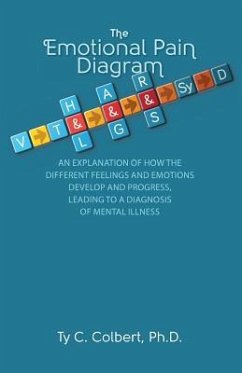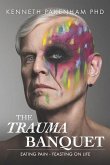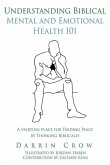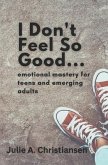The Emotional Pain Diagram (EPD) presents a concise and accurate account of how individuals react to the felt violations in their lives. This booklet explains the progression starting from a felt violation to the precipitation of the raw truth feelings of hurt, loneliness, anger, and guilt. From the natural occurrence of these truth feelings, the EPD then explains how human consciousness emotionalizes or transforms these basic feelings into the more complex emotions of shame and rage. Next, the booklet explains how these more complex emotions eventually lead to the symptoms associated with or used to diagnose a person with a particular so-called "mental illness". This booklet, and its corresponding diagrams, will take much of the mystery out of what is referred to as mental illness, especially the more difficult-to-understand conditions such as mania and schizophrenia. An accurate understanding of the EPD and the specific role of the different feelings will lead to great clarity of when to use or not use the four basic therapeutic approaches, namely drug therapy, cognitive therapy, twelve-step recovery programs, and finally, in-depth healing and grief work. In summary, this short booklet explains the role of feelings and emotions in such a way that it will simply make sense to both the suffering person and his or her helpers (professionals as well as family members), thus creating a path to healing and recovery regardless of the so-called major mental health diagnosis.
Hinweis: Dieser Artikel kann nur an eine deutsche Lieferadresse ausgeliefert werden.
Hinweis: Dieser Artikel kann nur an eine deutsche Lieferadresse ausgeliefert werden.








